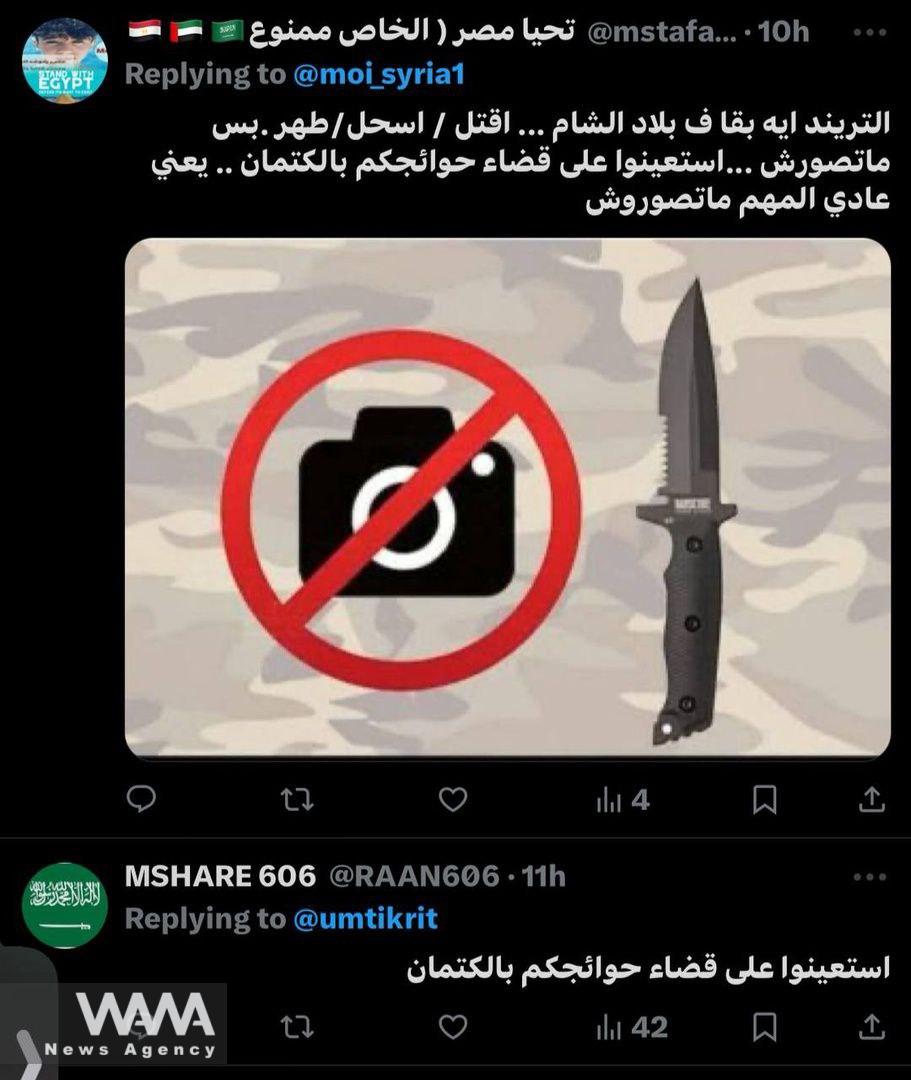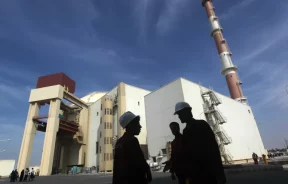New Directives from Al-Julani’s Forces for Killing in Syria
WANA (Dec 29) – Recent reports from Syria indicate that armed rebels under the command of Abu Mohammad al-Julani, leader of the “Hayat Tahrir al-Sham” (HTS) group, have undertaken deliberate and covert actions to continue killing and looting. This decision follows the release of videos documenting widespread violence against Alawites and other groups, triggering significant domestic and international outrage.
An audio recording attributed to leaders of this group reportedly includes a direct order to its fighters: “We ask you to continue the killings in coastal areas and elsewhere without filming. The world is watching us.” This message, circulated widely across various media platforms, advises the rebels to carry out their violent actions without recording them.

“We ask you to continue the killings in coastal areas and elsewhere without filming. The world is watching us.” This message, circulated widely across various media platforms, advises the rebels to carry out their violent actions without recording them / WANA News Agency
Reports suggest that this directive has been disseminated across more than 30 cities in Syria. Simultaneously, armed factions supporting this policy have spread the message via social media, urging their forces to avoid documenting any crimes.
Investigations reveal that approximately 95% of crimes, including executions, kidnappings, and looting, remain undocumented in Syria. Even members of the group who attempt to film such acts face severe punishment. This policy reflects the group’s efforts to minimize public backlash and prevent the circulation of evidence of their violence on the international stage.

“We ask you to continue the killings in coastal areas and elsewhere without filming. The world is watching us.” This message, circulated widely across various media platforms, advises the rebels to carry out their violent actions without recording them / WANA News Agency
This new approach by al-Julani’s group comes amidst escalating anger among Syrians, Arab nations, and the global community over their violent tactics. It highlights the group’s attempts to tighten information control and obscure the grim reality of Syria’s civil war.
Despite forming the “Salvation Government” in Idlib and establishing administrative structures aimed at presenting an image of stability, the group’s policies continue to be rooted in fear, repression, and secrecy. Reports of mass executions and retaliatory actions against dissenters have again raised serious concerns about human rights violations in this war-torn country.
Recent developments underscore that HTS’s rise to power has exacerbated Syria’s underlying crises rather than resolving them. As the Syrian population struggles with the devastating aftermath of war and violence, the future of the country under HTS remains shrouded in uncertainty.
The pressing question is whether this group can abandon its reliance on violence and secrecy to chart a new course for Syria, or whether it will persist with its repressive strategies of the past.













